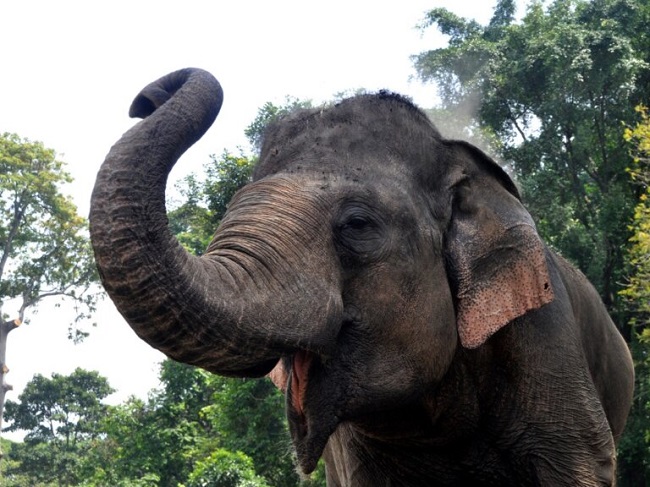Amazingly, elephants rarely get cancer. And it is amazing because, being such large animals, having more cells, it was expected that there would be more possibilities of genetic errors in the cell renewal process, which is directly associated with this condition.
However, mortality from cancer in these pachyderms does not reach 5%, while among humans it reaches 25%.
The reason that this happens, and that opens another door to the aid of science for the cure of this disease, lies in the molecular interactions of the p53 protein.
This has been discovered by a team of researchers from the Institute of Biotechnology and Biomedicine of the Autonomous University of Barcelona.
In their study they reveal that, while humans have a single copy of the p53 gene, elephants have 20! In other words, they have something like 20 guardians in their favor.
And it is not for nothing that the p53 gene is called the guardian of the genome. It has such a well-earned name because it is the protein that is activated when DNA is damaged and stops the replication of genetic material to repair “defective” copies.

Photo: taken from misanimales.com
It is the accumulation of such genetic errors that increases the risk of cancer, and the 20 copies of the gene puts the stop in the case of elephants.
The regulated interaction between this protein, p53, and the ubiquitin ligase MDM2, is decisive for healthy cells to divide and replicate while damaged cells are repaired, and cells with failed repairs or extensive damage are destroyed.
The study clarifies that each of these versions of the 20 p53 genes constitute 40 structurally different alleles, which expands the possibilities of molecular interactions against cancer in these large pachyderms compared to the two alleles of a single gene that humans possess. .
Using biochemical analyzes and computer simulations, the researchers discovered substantive differences in the regulated interaction between the various elephant p53 isoforms and MDM2.
“Conceptually, the accumulation of structurally modified p53 groups, which regulate responses to various stresses in the cell, establishes an alternative model of cellular regulation of great importance for potential biomedical applications”, says Dr. Konstantinos Karakostis, lead author of the study.
This research on elephants is an interesting and perhaps hopeful path because it allows “to better understand how these molecules are activated and when this can lead to a greater sensitivity and response against carcinogenic conditions”
(With information from xataka.com and Agenciasinc.es)
